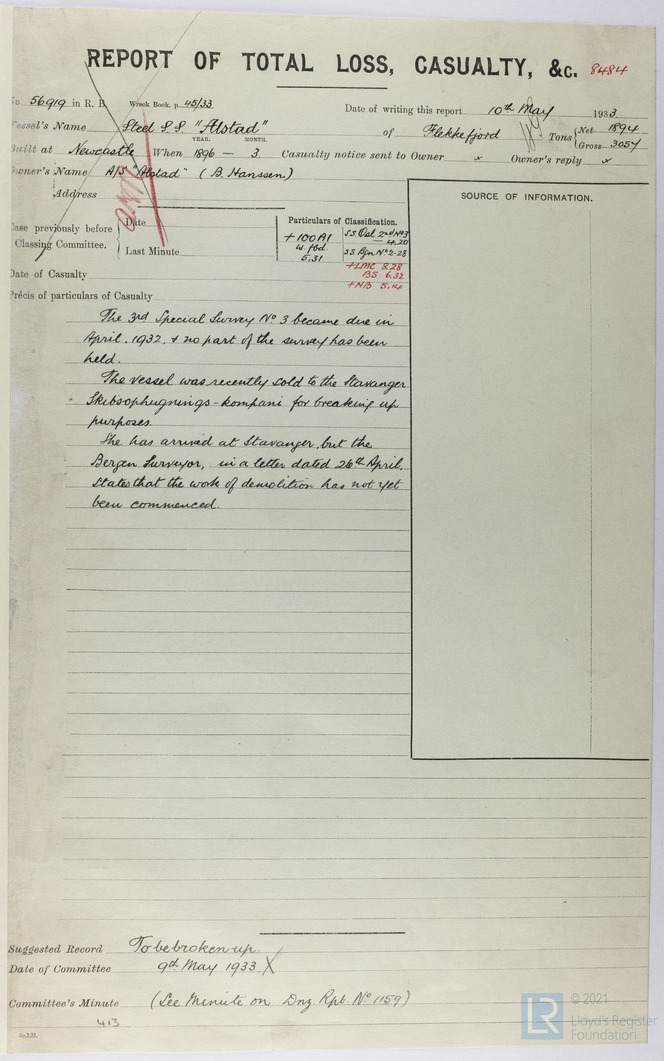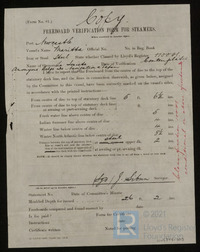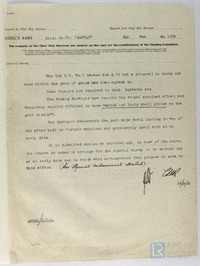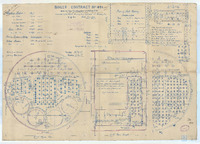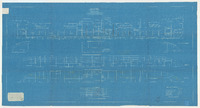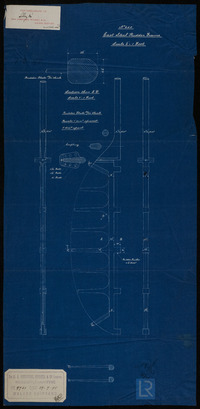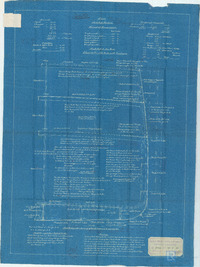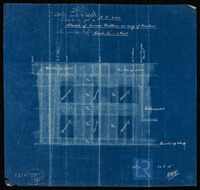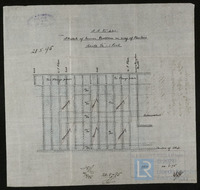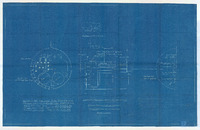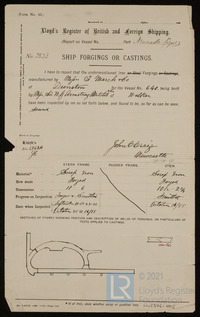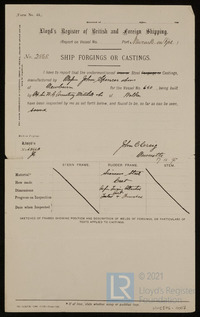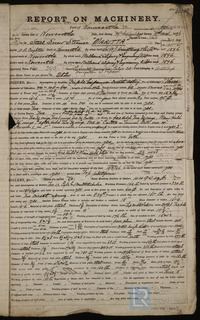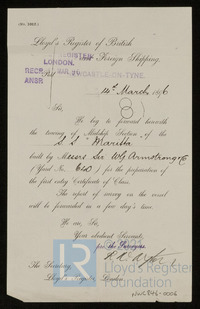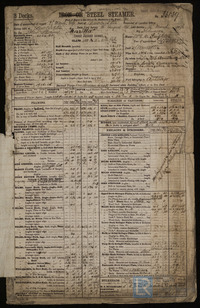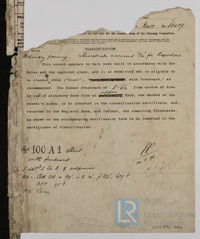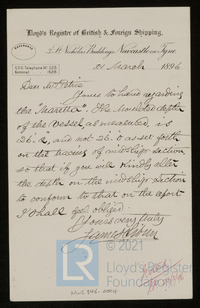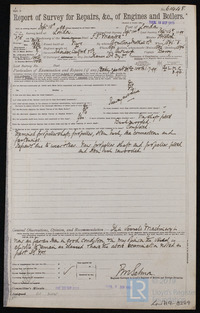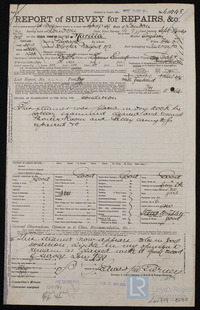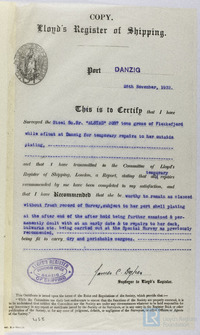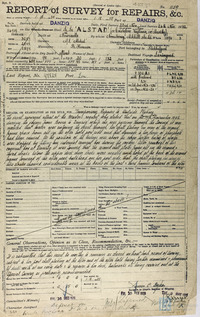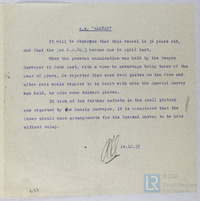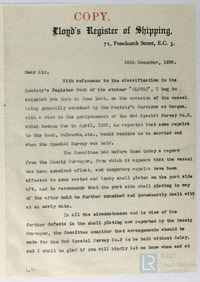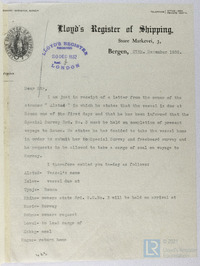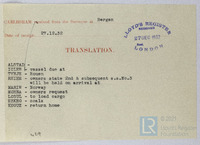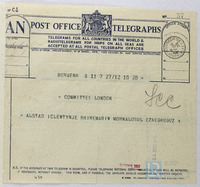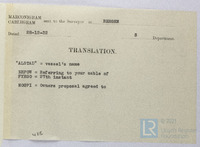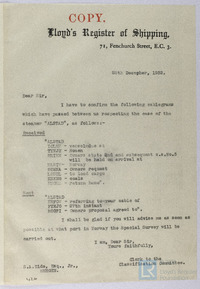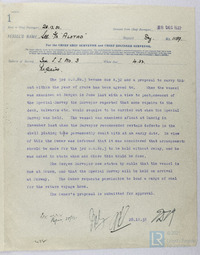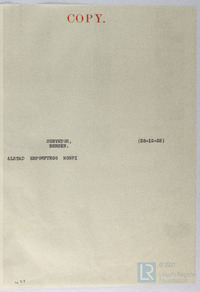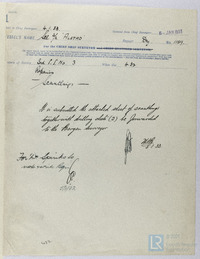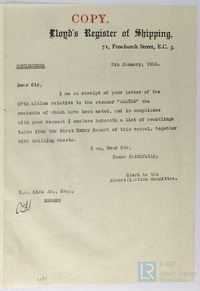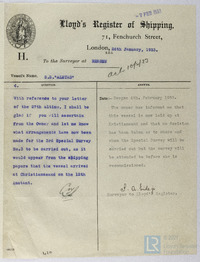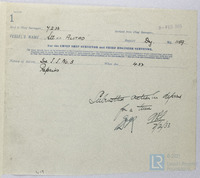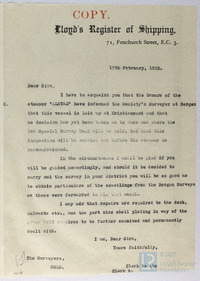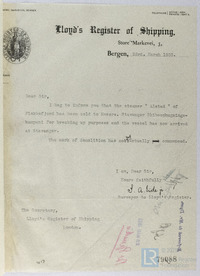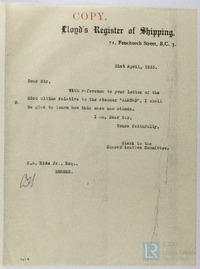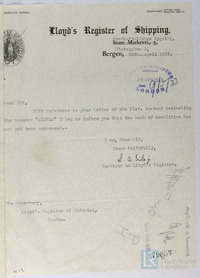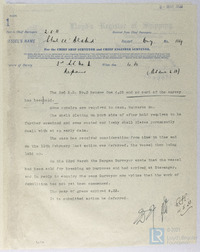- Related documents Related
- Full details Details
- Report document? Report?
Use the data export button to extract customised data sets from the Ship Plan and Survey Report Collection. Available in TSV and CSV formats.
Date recorded as the time of writing.
10/05/1933
The year in which a vessel’s construction is completed.
1896
The individual and/or organisation listed as having been responsible for constructing the vessel. This can/may be the same as the owner and/or manager.
Sir W G Armstrong & Co Ltd
The port or place in which the vessel’s construction took place, at the time of writing.
Newcastle
Additional numbers that feature on a given record that may be used for identification.
8484
The individual and/or organisation listed
A/S Alstad (A Hanssen), recently sold to Stavanger Skibsophugnings-kompani
Broad categories and subdivisions of vessels related to their purpose or function.
undefined
Is the steamer assisted by sail?
No
A ship’s total internal capacity of a ship measured in register tons from the top of the floors to the tonnage deck.
2844
Confirmation as to whether the vessel was equipped with refrigeration machinery to aid in the transport of frozen or chilled cargo/goods.
No
Does the vessel possess an auxiliary power source?
No
Is electric lighting fitted to the vessel?
No
Physical extent of a record.
1
Name of ship as recorded on the record
Maritta
The process of transferring a vessel to water, but not necessarily her completion.
13/02/1896
Unique identifier for a given ship, it is assigned by a builder.
640
Official administrative title (often printed) of a record used by Lloyd’s Register or external organisations.
Report of Total Loss, Casualty, &c./ Wreck reports
Records that constitute Lloyd’s Register’s first official encounters with a specific vessel, e.g. a survey report.
N
Classification symbol assigned to a vessel by Lloyd’s Register’s Classing Committee denoting the quality of construction and maintenance.
See minute on Dng Rpt No 1159
A vessel’s means of propulsion.
Steam
A ship’s total internal volume in ‘register tons’ (replaced by gross tonnage post 1982).
3057
Tonnage derived by deducting from the gross register tonnage the capacity that in unavailable for cargo, e.g. machinery space, fuel, crew accommodation etc.
1894
Is machinery fitted at the aft of the vessel?
No
Generally a smaller additional auxiliary boiler (often used while the vessel is at port).
No
Name of the Proving House responsible for the public testing and certification of a vessel’s anchors and/or chain cables.
No
Pertinent, useful or interesting recorded content.
The work of demolition has not yet commenced. Cannot be sure of which port the report number is referring to in the classification, possibly Barry or Bangor though.
Report an issue with this document
Have you noticed missing or incorrect data or images for this document?
Please let us know and we will rectify the issue as soon as possible.

